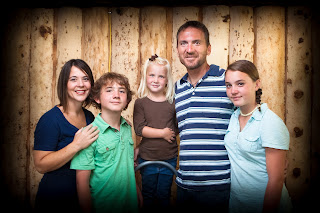Why I Signed the Manhattan Declaration
 Two years ago, the Manhattan Declaration was released to the public at the National Press Club. The Declaration is a call of Christian conscience issued by Catholic, Orthodox Christian, and Protestant leaders to affirm support of "the sanctity of life, traditional marriage, and religious liberty". The drafting committee includes evangelical leader Charles Colson, Princeton University law professor Robert P. George and Beeson Divinity School dean Timothy George. Close to a half a million people have signed the declaration including such leaders as James Dobson, Tony Perkins, Chuck Swindoll, Al Mohler, Ligon Duncan, Harry Reeder, Tim Keller, and Bryan Chapell.
Two years ago, the Manhattan Declaration was released to the public at the National Press Club. The Declaration is a call of Christian conscience issued by Catholic, Orthodox Christian, and Protestant leaders to affirm support of "the sanctity of life, traditional marriage, and religious liberty". The drafting committee includes evangelical leader Charles Colson, Princeton University law professor Robert P. George and Beeson Divinity School dean Timothy George. Close to a half a million people have signed the declaration including such leaders as James Dobson, Tony Perkins, Chuck Swindoll, Al Mohler, Ligon Duncan, Harry Reeder, Tim Keller, and Bryan Chapell.R. C. Sproul, Alister Begg, Michael Horton and others refused to sign the document because of its ecumenical overtones. The document identifies Catholics and Orthodox (as well as Protestants) as "Christian" which, they maintain, muddles the distinctives of the Biblical gospel, namely, justification by grace through faith alone. Sproul asks, "How could I sign something that confuses the gospel and obscures the very definition of who is and who is not a Christian?"
The signers of this document confess the faith of the ancient creeds of the church. I would contend that on this we can agree and take clear stands against moral evils of our day. I do so without compromising my convictions as an evangelical Presbyterian. I uphold the Westminster Confession of Faith as containing the system of doctrine taught in Scripture. Though this puts me at theological odds with Catholics and Orthodox believers on crucial matters of faith, it does not mean that we don't have much in common, and can take a common stand for life, marriage and liberty. In fact, on these issues, I will stand with Jewish and Muslim believers as well.
It is important to note what the Manhattan Declaration is and is not. It is not a wide-ranging theological document that subverts confessional integrity. It does not attempt to establish common ground on vast theological terrain. It does not seek to bridge the divide between Roman Catholics and evangelicals on the doctrine of justification. It is not a manifesto for united political action. It is a statement of urgent concern and common conscience on these three issues--the sanctity of human life, the integrity of traditional marriage, and the defense of religious liberty.
I signed the Manhattan Declaration because I agree with its core assertion:
Because the sanctity of human life, the dignity of marriage as a union of husband and wife and the freedom of conscience and religion are foundational principles of justice and the common good, we are compelled by our Christian faith to speak and act in their defense. In this declaration we affirm: 1) the profound, inherent, and equal dignity of every human being as a creature fashioned in the very image of God, possessing inherent rights of equal dignity and life; 2) marriage as a conjugal union of man and woman, ordained by God from the creation, and historically understood by believers and non-believers alike, to be the most basic institution in society and; 3) religious liberty, which is grounded in the character of God, the example of Christ, and the inherent freedom and dignity of human beings created in the divine image.
I urge you to read the Manhattan Declaration and if you can sign it in good conscience, please do so. Pray about how you can take a stand for the sanctity of human life, the honor of traditional marriage, and the defense of religious liberty and take action.

Comments
Post a Comment